| Regional Webinar on “Supporting Development of Financial Innovation and Fintech Sector” (March 2, 2023) |
|||
| Presenters Mr. Jan Ziomek, Team Manager, FinTech Department, Polish Financial Supervision Authority Ms. Adrianna Kołacińska, Senior Specialist, FinTech Department at the Polish Financial Supervision Authority |
|||
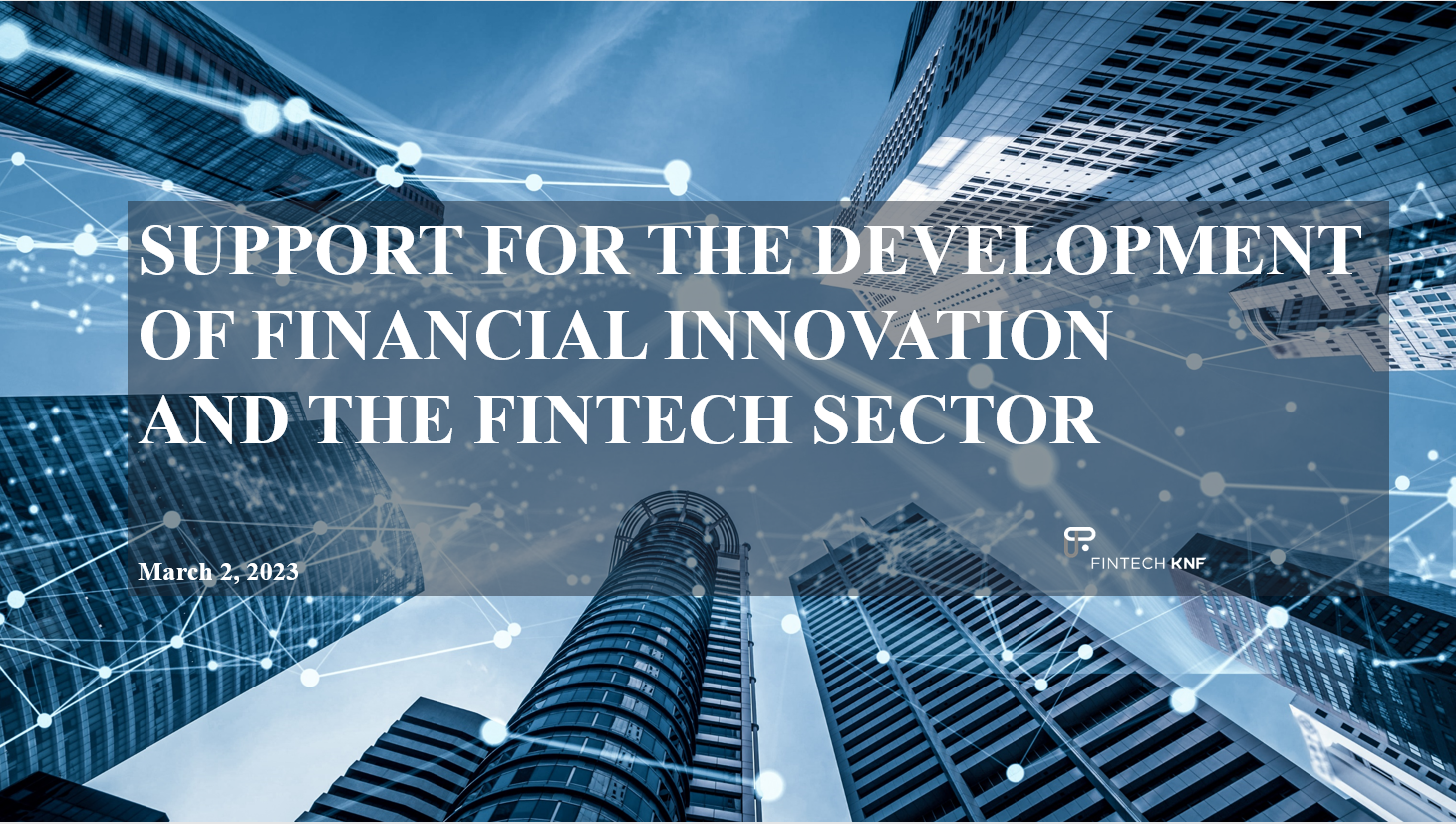 |
Fintech by now is a very important development, which encompasses many categories including payments, financial management, crypto assets, crowd financing, insurance, and innovations in the credit sector. While it increases efficiency and facilitates the user interface, fintech can also raise some interesting supervisory and regulatory challenges. The webinar focused on the progress of Poland and Georgia in supporting financial innovation and the fintech sector. For the detailed information please click here. |
||
| Outreach Seminar- National Bank of Kazakhstan “Digital Tenge” (February 9, 2023) |
|||
| Presenters Mr. Binur Zhalenov, Chairperson of the Payment and Financial Technologies Development Center of the NBK Mr. Eldos Kuanyshbekov, Strategic Development Director at the Payment and Financial Technologies Development Center of the NBK Ms. Ainur Kenzhayeva, Digital Tenge Project Manager at the Payment and Financial Technologies Development Center of the NBK |
|||
A large number of the world’s central banks are exploring or developing digital currencies. Countries cite different motives for exploring and issuing central bank digital currencies (CBDCs), including strengthening national and international payment systems, facilitating international transfers, and increasing the efficiency and transparency of social payment schemes. Other innovations are the ability to program digital coins for certain usages and to engage in offline transactions. All of these may foster financial inclusion. At the same time, the move to CBDCs also raises other interesting policy issues related to the implications of monetary policy and supervisors. For the detailed information click here. |
|||
| Webinar - Regional Economic Outlook: Regional Developments in the Caucasus and Central Asia and the Impact of the War in Ukraine (December 8, 2022) |
|||
| Presenters Mr. Rodrigo Garcia-Verdu, Senior Economist, Middle East and Central Asia Department, IMF Mr. Troy Matheson, Senior Economist, Middle East and Central Asia Department, IMF |
|||
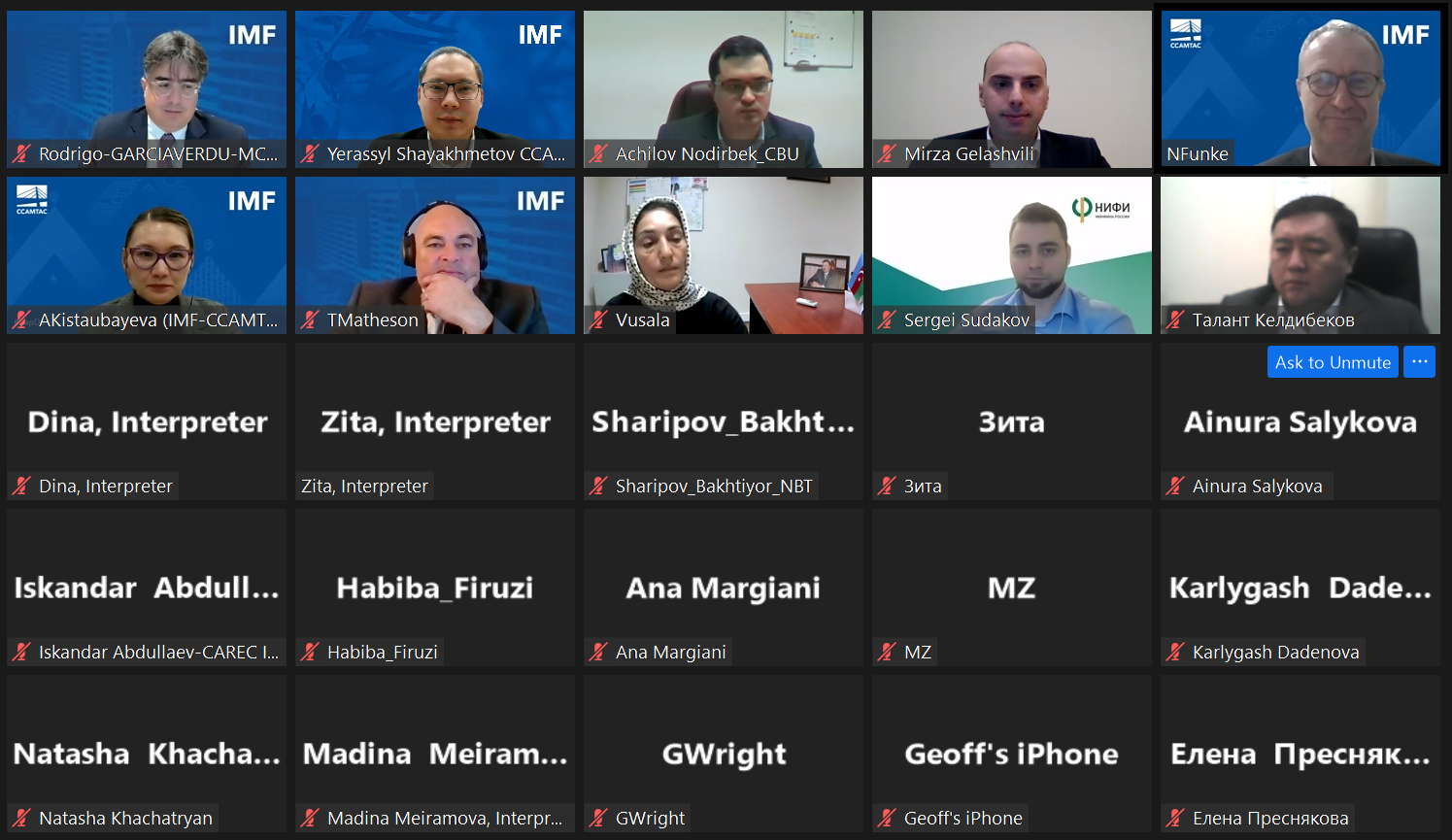 |
The adverse impact of Russia’s war in Ukraine on the Caucasus and Central Asia (CCA) has thus far been milder than expected. Countries in the region have indeed benefited from large inflows of capital and highly skilled workers from Russia. Still, the CCA’s strong ties to Russia entail substantial risks to the region’s outlook. The challenge for authorities is to restore price stability while managing these unexpected and positive developments and protecting against the possible reversal of recent financial and human inflows. For the detailed information click here. |
||
| Webinar - Climate Risk Analysis from a Regulatory Perspective in the Middle East and Central Asia (October 6, 2022) | |||
| Presenters Mr. Apostolos Panagiotopoulos, Senior Financial Sector Expert, Monetary and Capital Markets Department, IMF |
|||
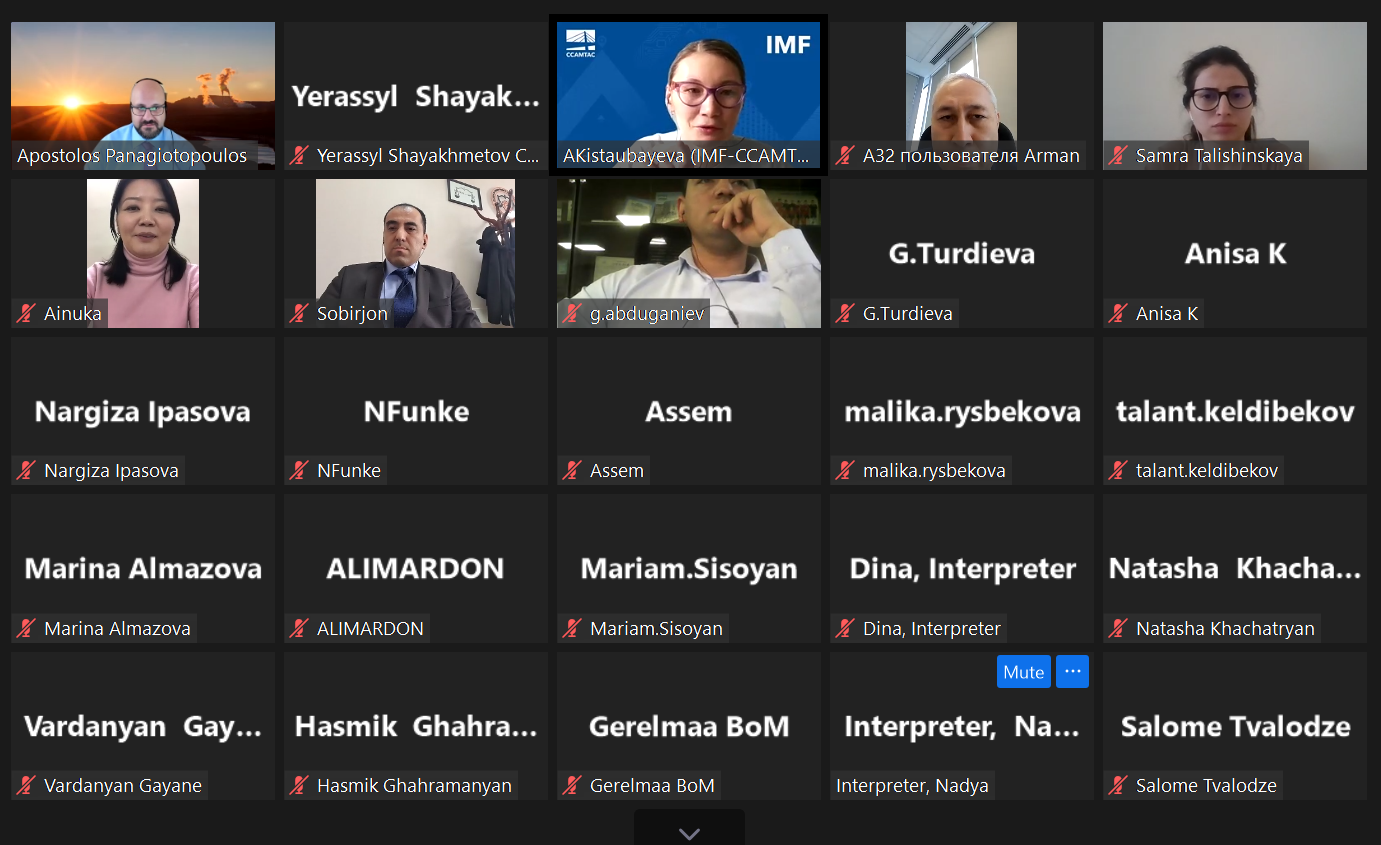 |
During the first session of the webinar, Apostolos Panagiotopoulos focused on characteristics of climate risks, their identification, designing of relevant climate scenarios, as well as approaches and modelling methodologies and their impact on the financial system. It is common to distinguish between physical and transition climate risks. While events directly related to climate change (droughts, floods, etc.) bring in physical risks, transition risks result from policy, technology, legal, and market changes that occur during the move to a low-carbon economy. Physical and transition risks are inter-twined, but trade-offs exist between economic and financial effects arising from them. For the detailed information click here. |
||
| Webinar - Revenue Mobilization for a Resilient and Inclusive Recovery in the Middle East and Central Asia (October 6, 2022) | |||
| Presenters Ms. Priscilla Muthoora, Senior Economist, Middle East and Central Asia Department, IMF Mr. Charles Vellutini, Senior Economist, Fiscal Affairs Department, IMF |
|||
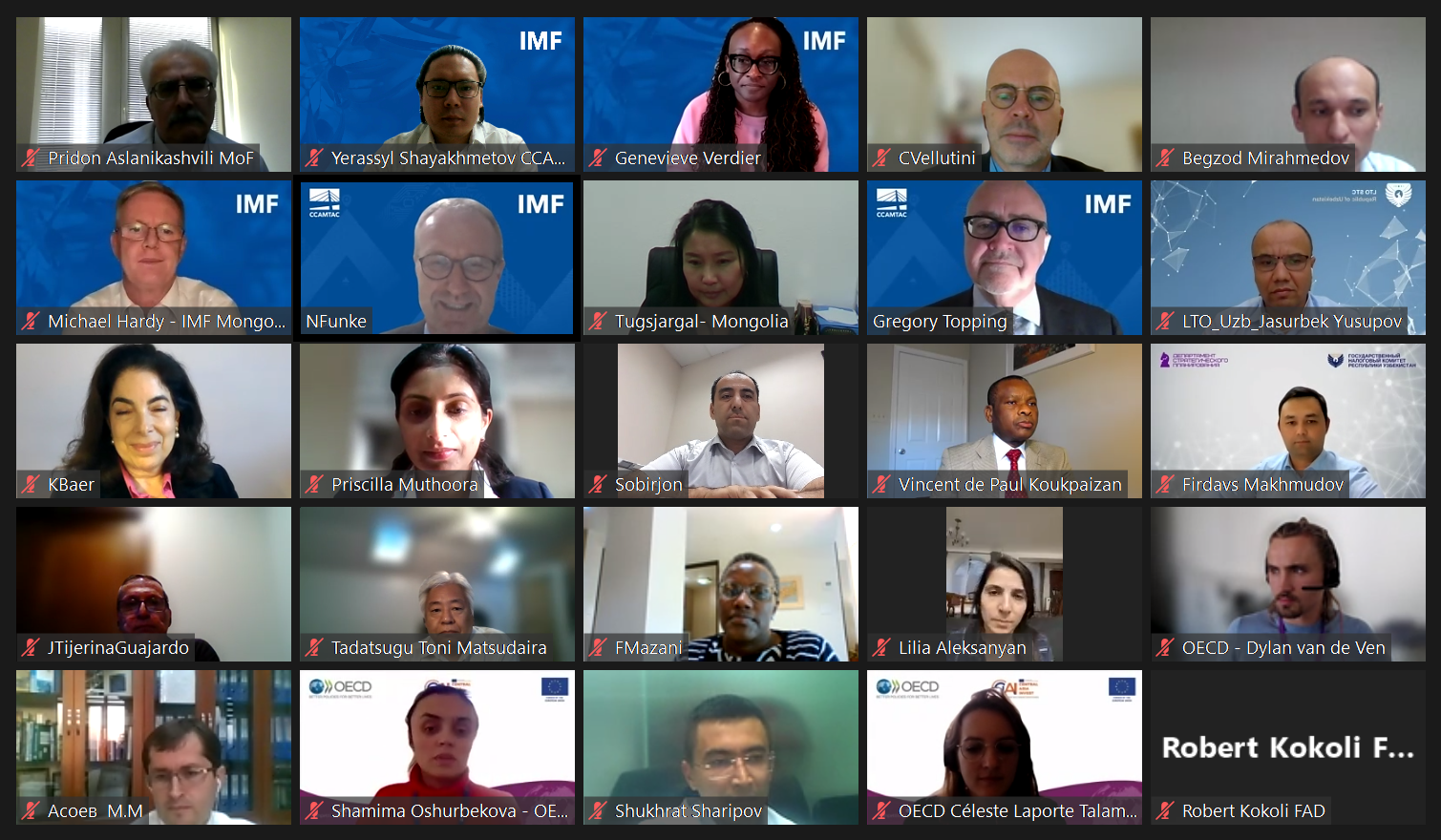 |
The COVID-19 pandemic and the war in Ukraine have intensified challenges of public finances, underlining the need for increased revenue mobilization to be able to support most socially vulnerable groups, invest in public infrastructure, and finance other priority needs. As a result, policymakers are looking to limit fiscal risks by adapting the design and pace of tax revenue mobilization. In a recent paper, IMF experts examined the scope for mobilizing additional tax revenue and discussed policies to gradually raise tax revenue while supporting resilient growth and inclusion in the Middle East and Central Asia (MECA). To support policymakers and institutions, the IMF stands ready to provide capacity development in tax system design and administration for all its member countries. For the detailed information click here. |
||
Webinar - Developing an Inflation Proxy Index via Web-scrapping (September 28, 2022) |
|||
| Presenters Mr. Ansar Seidakhmetov, Senior Specialist-Analyst, Monetary Policy Department, National Bank of Kazakhstan Mr. Islam Yerzhan, Chief Economist, Payment and Financial Technologies Development Center of the National Bank of Kazakhstan |
|||
.png) |
Inflation has been remaining a significant concern for policymakers and households for months. From the policy perspective, it is extremely important to have a clear understanding of current inflation developments, as well as inflation expectations. However, the official consumer price index (CPI) is usually published with a time lag and tends to lack granular data, which imposes limitations on the economic analysis. To solve this issue, several statistical agencies in the world started using web-scrapping or scanned data to generate high-frequency price indicators. For the detailed information click here. |
||
Webinar - Review of the Institutional View on the Liberalization and Management of Capital Flows (September 8, 2022) |
|||
| Presenters Mr. Suman Basu – Senior Economist, Research Department, IMF Ms. Annamaria Kokenyne – Lead Financial Sector Expert, Monetary and Capital Markets Department, IMF Mr. Pablo Morra – Deputy Division Chief, Strategy, Policy, & Review Department, IMF |
|||
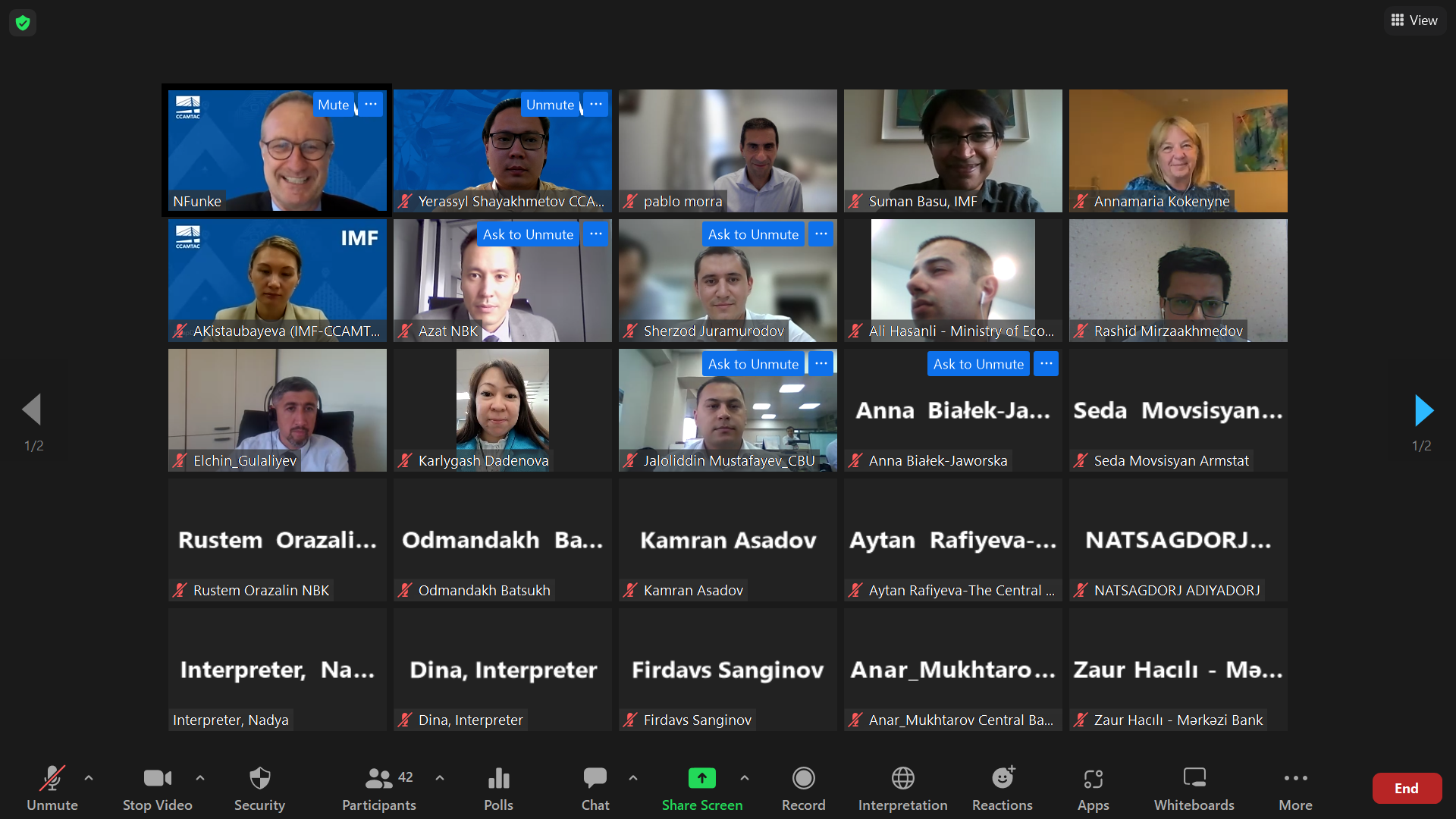 |
The IMF’s Institutional View on the Liberalization and Management of Capital Flows (IV) was adopted in 2012 and provides the basis for consistent Fund advice on policies related to capital flows. The IV aims to help countries reap the benefits of capital flows while managing the associated risks in a way that preserves macroeconomic and financial stability and does not generate significant negative outward spillovers. The review undertaken in 2022 aimed to bring the IV up to date with advances in theoretical and empirical research and policy experiences.. For the detailed information click here. |
||
Webinar on Shaping the Future of Capacity Development (August 25, 2022) |
|||
| Presenters Ms. Natalia Malysheva, Capacity Development Officer, Institute for Capacity Development, IMF Ms. Veronica Sanchez, Project Manager, Institute for Capacity Development, IMF |
|||
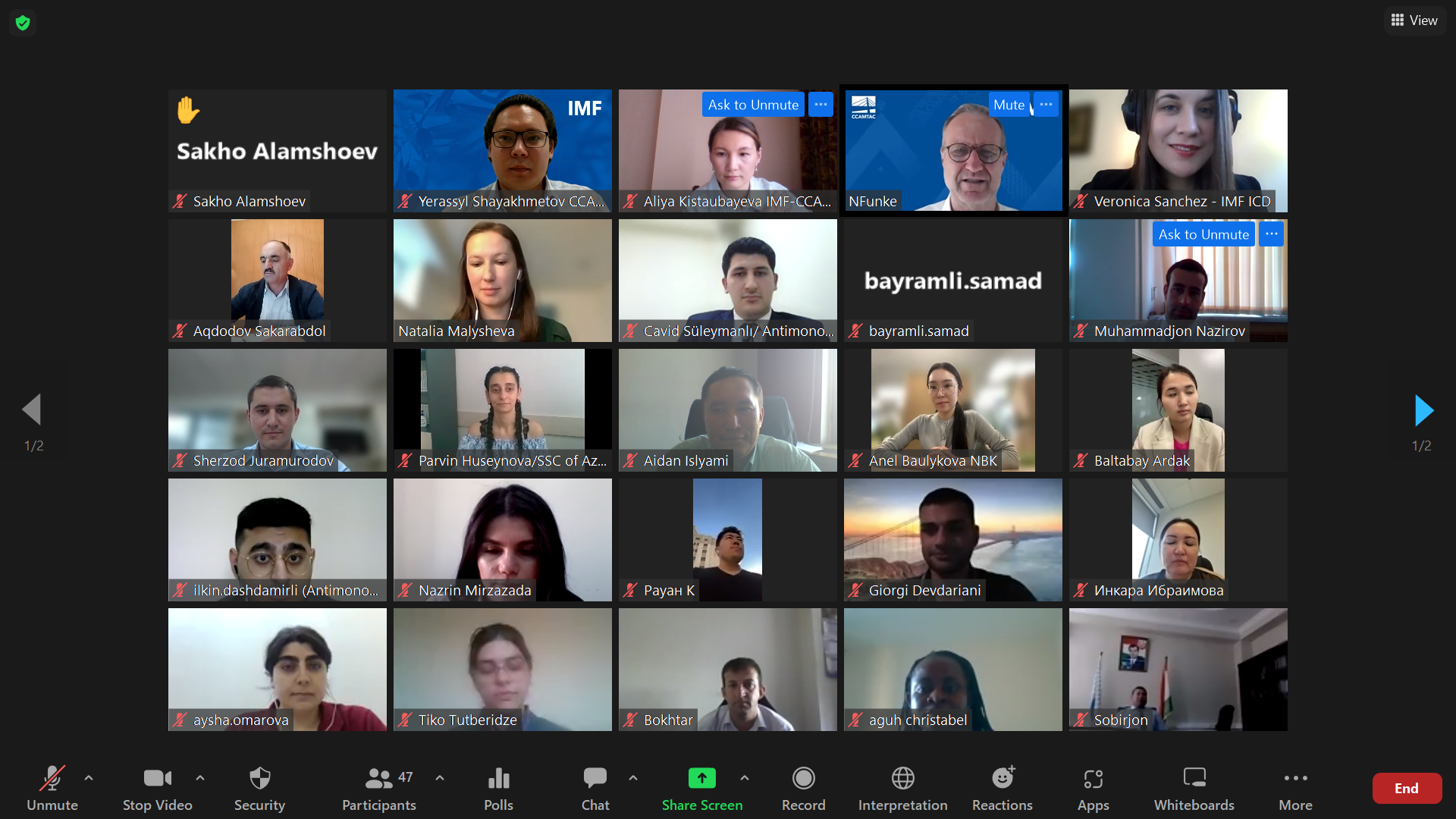 |
The IMF Online Learning Program aims at strengthening the technical knowledge and expertise in government agencies with a view to developing and implementing sound economic and financial policies fostering stability and growth. The online training program makes the IMF's expertise in key macroeconomic and financial issues available anytime, anywhere, and with free access for all. click here. | ||
Webinar on Customs Administration (July 20, 2022) |
|||
| Presenters Mr. Tadatsugu Matsudaira, Senior Economist, Fiscal Affairs Department Mr. Robert Kokoli, Technical Assistance Advisor, Fiscal Affairs Department |
|||
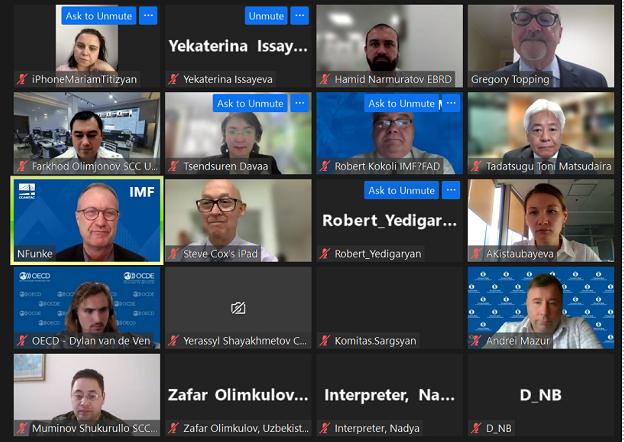 |
The digitalization of trade and customs processes, the adoption of new technologies and business models, renewed national security and safety of society concerns, and revamped protectionism - these are the prominent challenges that customs administrations in any part of the world have to face amid the deeper integration to the global supply chains and interdependent nature of international trade. The COVID-19 pandemic pointed out the importance of the smooth and flexible operation of customs. For detailed information click here. | ||
Webinar on Regional Economic Outlook: Inflation Dynamics and Spillovers of US Monetary Policy (May 25, 2022) |
|||
| Presenters Mr. Filippo Gori, Economist, Middle East and Central Asia Department, IMF Mr. Mohamed Belkhir, Economist, Middle East and Central Asia Department, IMF |
|||
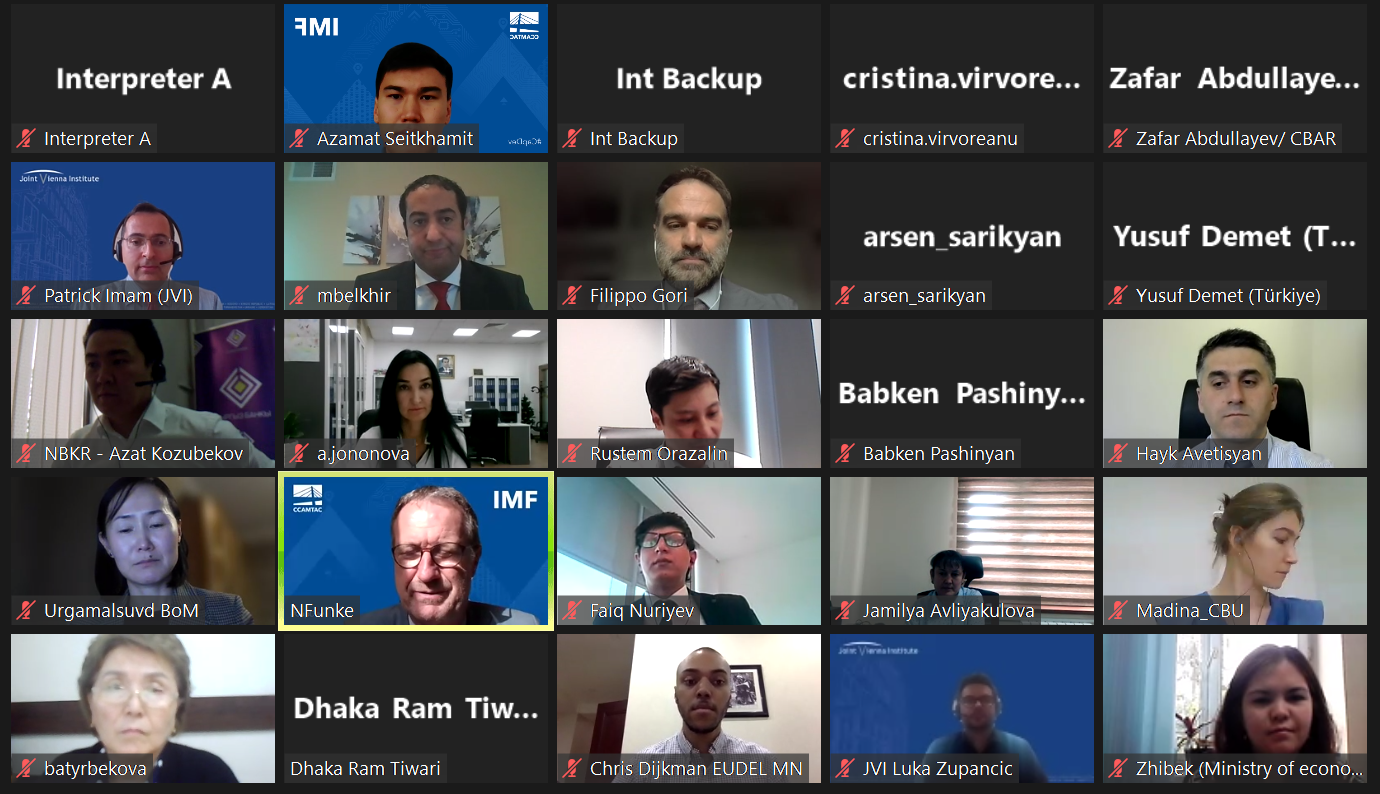 |
In its latest publication, the IMF's Middle East and Central Asia Regional Economic Outlook (REO) included analytical chapters dedicated to inflation dynamics and spillovers of tightening US monetary policy on the region. Inflation has become a global phenomenon, initially due to supply chain disruptions brought about by the pandemic, but price dynamics have since been exacerbated by the war in Ukraine and subsequent increase in commodity and food prices. The cycle of rising interest rates also adds pressure to emerging economies already hit by the COVID-19 pandemic. For the detailed information click here. |
||
Webinar on Financial Systems of Caucasus and Central Asia: Vulnerability to Shocks (May 5, 2022) |
|||
| Presenters Klakow Akepanidtaworn, Economist, Macro-Modelling and Monetary Division, Institute for Capacity Development, IMF Sanan Mirzayev, Economist, Debt Policy Division, Strategy, Policy, and Review Department, IMF |
|||
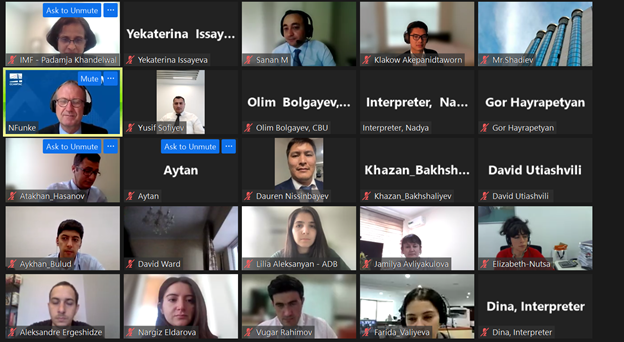 |
The presentations for this webinar were based on two recently published papers by MCD on “Managing Financial Sector Risks from the COVID-19 Crisis in the Caucasus and Central Asia and Macroprudential Policies to Enhance Financial Stability in the Caucasus and Central Asia. How well banking systems can cope with shocks depends on many characteristics, including the size and structure of the system, the level of dollarization, supervisory and regulatory frameworks, and the policy responses to shocks. For the detailed information click here. |
||
